Student Testimonials
We piloted Mad School in seven undergraduate courses across three faculties at York University during the 2019-2020 academic year. Student feedback was positive about the educational potential of the site, and particularly regarding the value of experiential voices in the classroom. Many students referenced personal connections to mental health that were validated by Mad School teaching material – a place where these resources can help educational institutions meet their mental health goals.
We want to learn more about how Mad School impacts learners and educators. Please share reviews with us at madness@yorku.ca
Because of my culture, we don’t talk about mental health. I used to believe it wasn’t real. Lanny’s story made me realise that ignorance is shown throughout society when it comes to mental health issues. I want to learn more about mental health. 3rd Year Health & Society student, York University
I really like Mad School. The website is easy to engage with and the content is very meaningful to me. 4th Year Health Policy student, York University
Mad School gave me historical context about how societal norms/beliefs/expectations permeate into the discourse of psy-sciences, pathologizing common experiences and/or distress. I also gained valuable knowledge about the activism of the psychiatry-survivor movement, which has deepened my interest in alternatives to psychiatry, as well as how this might affect the way I practice in my community. 4th Year Health Policy student, York University
I believe the Psychiatric Gaze sculpture from the Medicine and Power module alone is very powerful. In my opinion, this should be shown to doctors and nurses around the world that work with those who suffer from mental illness so they can realize how some people feel when they are being treated. 4th Year Nursing student, York University
Dana Allan and Alistair Scott-Turner emphasize the impact of labeling in healthcare, and how it can create stigma towards mental illness by adding a negative and disabling connotation. This brought to light how this labelling culture can further impact the individuals’ self-worth and health. I realized that through only engaging in a biomedical perspective I may be adding to the oppression that these people experience. 4th Year Nursing student, York University
Student Work Samples
York University course director Dagmara Woronko opted to teach the entire Doreen Befus Story Unit over a series of classes in her Inclusive Education Course. In this unit, students work through two guided learning exercises on the law and practice of sexual sterilization in early twentieth-century Alberta, Canada – facts and analysis made real through the life story of Befus, sterilized as a teenager without her knowledge or consent.
These work samples demonstrate the impact that Mad School’s experiential approach has on student engagement and critical thinking. After the guided learning exercises were completed, Woronko assigned learners the summative task of creating a Sterilization Timeline, tracing international, national and provincial events that determined Doreen Befus’ fate, and integrating them alongside Doreen’s own powerful narrative. Woronko used this as a graded exercise.
Eugenics in Canada Timeline
Julene Gardner
Education student, York University
Sterilization Timeline (selection)
Antonella Pagano – Education student, York University
Sterilization Timeline (selection)
Wen Zhen Don – Education student, York University
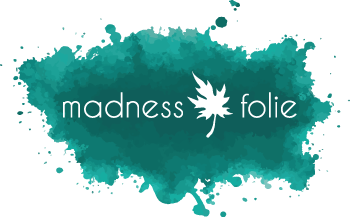
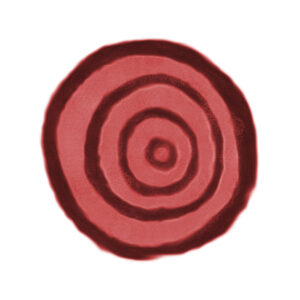
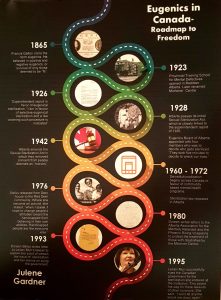
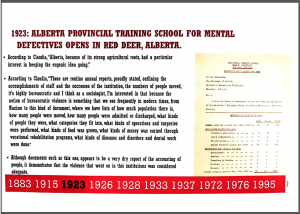
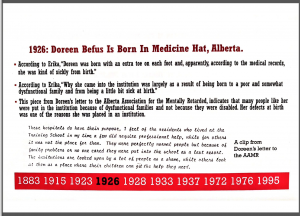
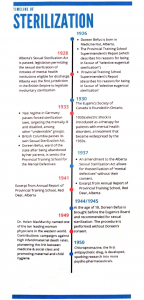

 Français
Français